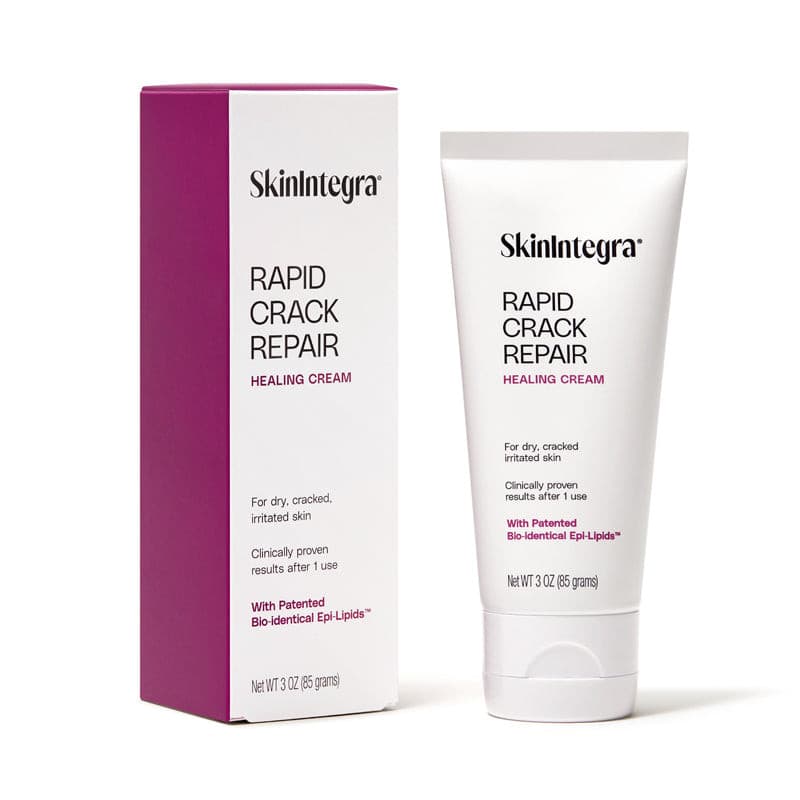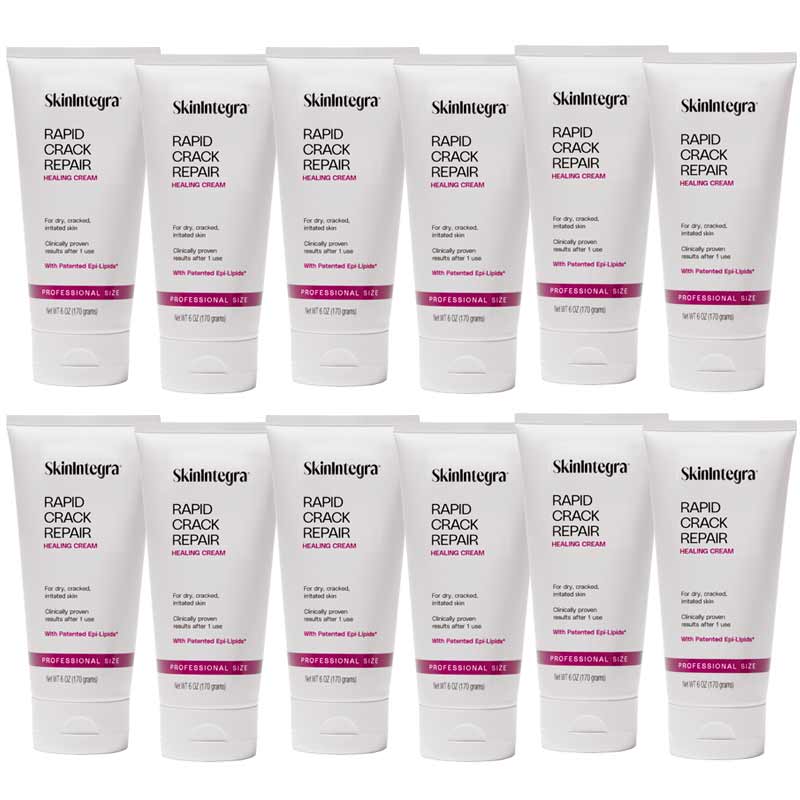Summer is a time for fun in the sun, but it can also be a challenging season for your feet. Hot weather, increased outdoor activities, and wearing open-toed shoes can all contribute to the dreaded problem of cracked heels. These painful, unsightly fissures can put a damper on your summer plans. However, with the right summer foot care routine and a few essential tips and tricks, you can prevent dry heels and keep your feet looking and feeling great. This comprehensive guide will help you achieve healthy summer feet.

Understanding Cracked Heels
Cracked heels, also known as heel fissures, occur when the skin on your heels becomes dry, thick, and calloused. This condition can be exacerbated by several factors common in the summer, such as:
- Heat and Humidity: Hot weather can cause your feet to sweat, leading to loss of moisture and dehydration of the skin.
- Open Footwear: Sandals and flip-flops expose your heels to the elements, increasing the risk of dryness and cracks.
- Increased Activity: More walking, running, and standing can put extra pressure on your heels, leading to cracks and discomfort.
Essential Tips for Cracked Heels Prevention
-
Keep Your Feet Hydrated
Hydration is key to preventing cracked heels. Here's how to maintain optimal moisture levels: - Daily Moisturizing: Apply an emollient-rich foot cream or heel balm every morning and night. Look for ingredients like urea, glycerin, and shea butter, which help attract and retain moisture.
- Hydrating Foot Soaks: Soak your feet in lukewarm (not hot) water with added Epsom salts or a few drops of essential oils like lavender. This not only softens the skin but also prepares it for better absorption of moisturizers. Not recommended if you have diabetes.
- Drink Plenty of Water: Staying hydrated from the inside out is crucial. Aim to drink at least 8 glasses of water a day to keep your skin hydrated and healthy.
-
Exfoliate Regularly [Not recommended if you have diabetes]
Exfoliation helps remove dead skin cells and prevents the buildup of calluses that can lead to cracked heels: - Pumice Stone: Gently rub a pumice stone or foot file over your heels after a shower or foot soak to slough off dead skin. Be careful not to overdo it, as excessive exfoliation can cause more harm than good.
- Foot Scrubs: Use a very gentle foot scrub with natural exfoliants like sugar or salt once or twice a week to keep your heels smooth and soft. Follow usage instructions to avoid slipping if products are oil based.
-
Choose the Right Footwear
Your choice of footwear plays a significant role in summer heel care: - Supportive Sandals: Opt for sandals with good arch support and cushioned soles. Avoid completely flat sandals or flip-flops, which offer no support and can exacerbate heel problems.
- Closed Shoes: When possible, wear closed shoes that protect your heels from the elements. Breathable materials like mesh or canvas can help keep your feet cool and dry.
-
Protect Your Heels
Preventing exposure to harsh conditions is crucial for healthy summer feet: - Heel Guards or Socks: Consider using heel guards or wearing socks with your sandals. This can provide a barrier against dirt, debris, and harsh surfaces that can dry out your skin.
- Sunscreen for Feet: Just like the rest of your body, your feet need protection from UV rays. Apply sunscreen to your feet, especially if you'll be spending extended time outdoors.
-
Maintain Proper Foot Hygiene
Keeping your feet clean and dry is essential for summer foot care: - Daily Washing: Wash your feet daily with mild soap and lukewarm water. Pay special attention to the areas between your toes and under your nails.
- Thorough Drying: Make sure to dry your feet thoroughly, especially between the toes, to prevent fungal infections that can worsen heel cracks.
- Powder for Sweat: If you tend to have sweaty feet, use an antifungal foot powder to keep them dry and reduce the risk of infections.
-
Use Night Treatments
Nighttime is the perfect opportunity to give your feet some extra TLC: - Overnight Moisturizing Socks: Apply a generous amount of foot cream before bed and wear moisturizing socks overnight. This helps lock in moisture and allows the cream to penetrate deeply.
- Intensive Heel Repair: For severely cracked heels, consider using intensive treatments like foot masks or heel balms that are designed to provide deep hydration and repair.
Introducing SkinIntegra’s Rapid Crack Repair Cream: Your solution for soft and problem-free heels all summer

Rapid Crack Repair Cream is a game-changer in the world of foot care. The result of in-depth research into the key skin barrier deficiencies in dry, cracked skin conditions, Rapid Crack Repair Cream sets a higher bar for delivering both fast relief from cracked feet and remarkably soft feeling feet.
The breakthrough is SkinIntegra's patented skin repair formulation that precisely mimics the composition of our skin barrier. Unlike conventional foot creams that zero in on one specific ingredient, Rapid Crack Repair Cream includes the full spectrum of lipids and moisturizers found in a healthy skin barrier. It makes no compromises and delivers visible improvement in cracked skin in the first 24 hours. It just received the Seal of Approval from the American Podiatric Medical Association (APMA) for promoting foot health.
Diet and Lifestyle Tips for Healthy Summer Feet
Your diet and lifestyle also play a crucial role in maintaining healthy heels:
-
Balanced Diet
A diet rich in vitamins and minerals supports skin health. Include foods high in vitamin E (nuts, seeds, spinach), vitamin C (citrus fruits, bell peppers), and omega-3 fatty acids (fish, flaxseeds) to promote skin hydration and elasticity. -
Avoid Excessive Heat
Try to keep your feet cool and avoid prolonged exposure to hot surfaces, such as sandy beaches or hot pavement, which can dry out your skin. -
Regular Exercise
Exercise improves circulation, which can help keep your skin healthy. Incorporate gentle foot exercises, such as toe stretches and heel raises, to strengthen the muscles and improve blood flow to your feet. -
Stress Management
Stress can negatively impact your skin health. Practice stress-relief techniques like yoga, meditation, or deep-breathing exercises to maintain overall well-being.
When to See a Podiatrist
While most cases of cracked heels can be managed with proper care and home remedies, there are times when you should seek professional help:
-
Severe Pain or Bleeding
If your cracked heels are causing significant pain or bleeding, it's essential to consult a healthcare provider to prevent infection and receive appropriate treatment. -
Signs of Infection
Symptoms like redness, swelling, warmth, or pus may indicate an infection. Seek medical attention to avoid complications. -
Underlying Medical Conditions
If you have diabetes or another condition that affects circulation or skin health, it's crucial to get professional advice to manage your foot care properly.
Conclusion
Cracked heels can be a painful and frustrating problem, especially during the summer months. However, with the right approach to summer foot care, you can prevent dry heels and enjoy healthy summer feet. By keeping your feet hydrated, exfoliated, and protected, choosing the right footwear, and incorporating natural remedies, you can maintain smooth, crack-free heels all season long. Remember, a little extra care and attention can go a long way in keeping your feet looking and feeling their best. So, embrace these essential tips and tricks for cracked heels prevention and step confidently into summer!





